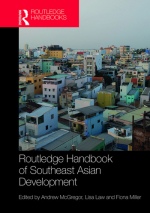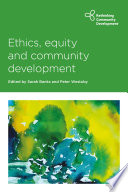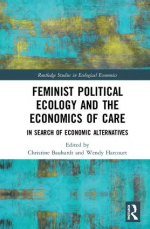Community economies in Southeast Asia: a hidden economic geography

Researchers have long recognized practices of mutual aid, reciprocity and sharing as prevalent features of everyday community life in Southeast Asia.

Researchers have long recognized practices of mutual aid, reciprocity and sharing as prevalent features of everyday community life in Southeast Asia.

Community Economy theory has gained much traction over the past two decades as a language politics and an ethical tool kit for researchers and practitioners in the field of community development. This chapter examines Community Economy approaches to development using two empirical examples from quite different contexts that highlight key ethical concerns.
After five years of the consolidation, Mutual Support-Rekülüwun can be seen as part of a repertoire of creative responses by Mapuche families to the monetization of their rural economies in southern Chile, which has accelerated notoriously in the last decade. The project was set out in 2012 by the Mapuche-Lafkenche community of Llaguepulli and MAPLE, to create a member-owned institution while abiding to an indigenous cultural context and community protocols.
In this paper we present a method for valuing the multidimensional aspects of urban commons. This method draws from and contributes to a broader conception of social or community returns on investment, using the case and data of a vibrant project, strategy, and model of ecological resilience, R-Urban, on the outskirts of Paris. R-Urban is based on networks of urban commons and collective hubs supporting civic resilience practices.
This paper is based on the 2016 Neil Smith lecture presented at St Andrews University. It honours the work of a geographer whose pioneering work on uneven development and the complex relations between capitalism and nature shaped late 20th century thinking inside and beyond the discipline of Geography.
Despite the shortened commodity chain created for coffee through fair trade, there still exist a number of actors within certified commodity exchange. This chain is populated by disproportionately engaged actors, from a consumer looking for the certification seal, to coffee roasters working directly with coffee producing cooperatives, to producers striving to keep up with the standards for certification.
In this PREZI we show the differences between community economies and capitalist economies. It was produced by Renato Berrino, David Burin and Ana Inés Heras. The language used is Spanish. Click HERE for viewing Prezi.
Asset Based Community Development or Asset-Based and Citizen-Led Development (ABCD) is being used in a range of development contexts. Some researchers have been quick to dismiss ABCD as part of the neoliberal project and an approach that perpetuates unequal power relations. This paper uses a diffracted power analysis to explore the possibilities associated with ABCD as well as the challenges.
We use two Christchurch case studies to think about the temporality of commoning, concluding that even transitional and temporary commoning can help normalise and make visible the practice, thus enabling commoner subjectivities.

In this era of human-induced environmental crisis, it is widely recognized that we need to foster better ways to sustain life for people and planet. For us – and other scholars drawing on the Community Economies tradition – better worlds begin in recognising the diverse and interconnected ways human communities secure our livelihoods. Community Economies scholarship is a body of theory that evolved from the writings of geographers J.K. Gibson-Graham, which, for more than thirty years, has inspired others (including the three of us) to rethink economy as a space of political possibility.